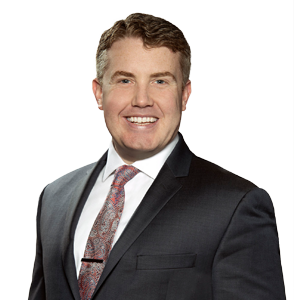Iowa is on the brink of becoming the next state to embrace captive insurance companies. On April 24, the Iowa Senate unanimously passed Senate File 549 (SF 549), as amended, “a bill for an act relating to captive insurance companies,” which the House passed earlier in April. Governor Kim Reynolds is expected to sign the bill into law, making Iowa the thirty-sixth United States jurisdiction (including the District of Columbia) to adopt a captive insurance statute. Bills passed by the Iowa General Assembly and signed into law normally go into effect July 1 following passage unless otherwise specified. SF 549 does not specify an effective date, so it is expected to become effective July 1 of this year, bolstering Iowa’s robust insurance industry with a modern, competitive statute.
SF 549 is modern, well written and bears a strong resemblance to predecessor statutes from other jurisdictions. It authorizes the formation of pure, association, protected cell, special purpose and industrial insured captives, establishes regulatory reporting and examination requirements, provides a premium tax framework and charges the Iowa Insurance Division with the responsibility of administering the law and promulgating rules under it.
The license categories mirror the “traditional” categories used in other jurisdictions and include a “special purpose” category, which is reserved for captives “formed or authorized [in Iowa] that [do] not meet the definition of any other type of captive company [defined in SF 549], or that [are] formed by, on behalf of, or for the benefit of a political subdivision of [Iowa].” The “special purpose” category will afford the Insurance Division flexibility to license captives that do not fit squarely into any of the “traditional” categories.
Each captive, including, if applicable, series and protected cell captives, must pay an initial registration fee and an annual renewal fee of $300. The one-time non-refundable application fee is $200. Every captive must submit an annual report to the Insurance Division by April 1 of each year and undergo regulatory exams at the discretion of the insurance commissioner, but no less frequently than every three years. Annual premium taxes on direct premiums will be assessed as follows:
- 0.35 percent on the first $20 million of direct premiums, plus
- 0.25 percent on each dollar of direct premium over $20 million.
Meanwhile, annual premium taxes on assumed reinsurance premiums will be assessed as follows:
- 0.20 percent of assumed reinsurance premiums up to $20 million, plus
- 0.125 percent of assumed reinsurance premiums from $20 million to $40 million plus
- 5.0 percent of assumed reinsurance premiums that exceed $40 million.
The General Assembly set the minimum annual premium tax for all captives at $5,000. Much like in the vast majority of other captive jurisdictions, a captive domiciled in Iowa will be required to have a director or manager who is a resident of the state. Additionally, the parties responsible for managing each captive will be required to hold an annual meeting in Iowa each year.
Iowa will also have dedicated captive insurance regulators. The Insurance Division is expected to establish a captive insurance bureau to carry out its obligations under SF 549. The bureau will be staffed by three new full-time employees: a bureau chief, an examiner specialist and an examiner. Their salaries, as well as the other costs of administering the law, will be funded by Iowa’s General Fund until the state has generated sufficient premium tax revenue from captives to cover them. Dedicated captive regulators and funding are critical to the sustained growth of a captive jurisdiction.
Finally, SF 549 brings captives to a jurisdiction that already boasts a large and sophisticated insurance industry, which is perhaps why the General Assembly rather ambitiously anticipates net taxable premiums from captives to reach $15 billion during 2023 and increase 6 percent per year.
With a modern, competitive bill that is comparable in many ways to the captive statutes of other jurisdictions, including with respect to premium taxes and fees, dedicated captive regulators and a robust underlying insurance industry, Iowa will be a captive domicile to watch in the future.



